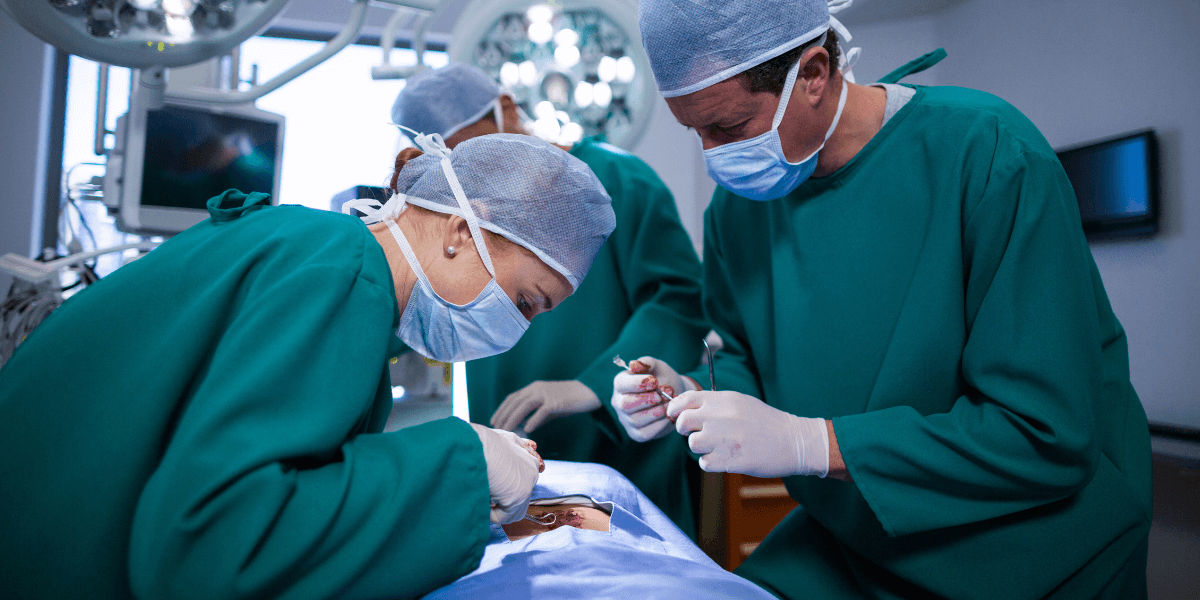


Laparoscopic colectomy is a minimally-invasive medical operation where a small section of the colon, commonly known as the large intestine, is removed. During the surgical method, multiple small incisions are created. Laparoscopic colectomy has grown in popularity in recent years due to several advantages, including a shorter healing time, less discomfort, and minimal scarring as opposed to open surgery.
This guide will enable you to understand laparoscopic colectomy and to consider pursuing the right treatment in a timely manner.
Laparoscopic colectomy is a surgical, minimally invasive operation for removing part of the colon. Compared to traditional surgical intervention, which requires a large incision, laparoscopic colectomy employs many small incisions through specialized equipment inserted to remove the afflicted part of the colon. Compared to open surgery, this method has many advantages, including less discomfort and quicker recovery timelines. Laparoscopic colectomy is recommended by doctors for individuals with colon cancer, inflammatory bowel disease, and diverticulitis. It is crucial to highlight that not everyone stands as a good candidate for laparoscopic colectomy, and the choice to undertake the treatment should be made in conjunction with a healthcare specialist.
See Also: Open Surgery vs Laparoscopic Surgery: Which Is the Best Procedure?
Laparoscopic colectomy is a non-invasive surgical procedure for removing part of the colon. Laparoscopic colectomy provides a multitude of advantages over standard open surgery, including:
Patients who undergo laparoscopic colectomy often suffer less postoperative pain and can resume regular activities sooner than those who undertake standard open surgery.
Due to the tiny incisions utilized in laparoscopic colectomy, scarring is reduced compared to standard open surgery, potentially enhancing the patient's cosmetic results.
Compared to standard open surgery, laparoscopic colectomy has a lesser chance of adverse effects such as site area infections, clotting, and internal bleeding.
However, as with any surgical operation, there are potential hazards associated with laparoscopic colectomy.
Below are the risks of laparoscopic colectomy:
Infection is a concern with any surgical procedure; laparoscopic colectomy is no exception.
There is a risk of bleeding during the process, but it is usually less than with traditional open surgery.
There is a risk of accidentally damaging other organs in the abdomen, such as the bladder or ureter, during the treatment.
If the physician meets unforeseen challenges during the process, the laparoscopic colectomy may need to be switched to regular open surgery.
Anesthesia, when used in any surgical treatment, carries the possibility of complications such as an allergic response or respiratory problems.
To determine if a laparoscopic colectomy is the right choice, individuals should talk to their healthcare practitioner about its advantages and disadvantages in their circumstances. While laparoscopic colectomy contains numerous advantages, the procedure may not be the ideal choice for everyone based on medical background and health.
Laparoscopic colorectal surgery, also known as minimally invasive surgery or keyhole surgery, is a type of surgery that employs small incisions and specialized instruments.
The following are some distinct advantages of laparoscopic colorectal surgery:
Laparoscopic surgery's small incisions lower the possibility of infection and other postoperative problems.
Laparoscopic surgery uses far smaller incisions than open surgery, potentially leading to superior cosmetic outcomes and less deformity.
A high-definition camera is used in laparoscopic surgery to provide a good picture of the operative wound, enabling more accurate and precise surgical treatments.
Laparoscopic surgery minimizes the likelihood of developing an incisional hernia, which can occur during traditional surgical intervention.
Compared to conventional open surgery, the small incisions utilized in laparoscopic surgery result in less cellular injury and suffering.
Compared to open surgery, laparoscopic colorectal surgery patients enjoy faster recoveries and shorter hospital stays.
Laparoscopic surgery reduces blood loss, which can be especially useful for individuals with underlying medical disorders that impact blood clotting.
These are some preventative measures that can help reduce the risks of laparoscopic colorectal surgery:
Laparoscopic surgery candidates should be carefully chosen based on their medical records, general well-being, and the complexity of the surgical treatment needs.
Surgeons and their teams should have complete knowledge and expertise to safely and successfully execute laparoscopic colorectal surgery.
Specialized laparoscopic instruments and equipment developed for colorectal surgery should be used to limit the risk of issues.
Close attention to infection control measures, such as hand cleanliness and adequate equipment sterilization, should be adopted to lower the risk of infection.
Colorectal conditions are often diagnosed by considering the combination of medical history, physical assessment, and diagnostic imaging testing. Treatment options consist of non-invasive laparoscopic surgery, which can remove cancerous tissue and restore or rebuild the damaged area. Medication, radiation therapy, or surgical oncology serve as other viable treatment options.
See Also: Minimally Invasive Surgery and Its Benefits: An Overview
Our team of highly skilled, board-certified general surgeons, led by Dr. Prasad, collaborates with various specialists to provide patients with the best laparoscopic colectomy in Anchorage, AK.
At Far North Surgery, we prioritize patient security and ease, working hard to achieve positive outcomes in every case. Dr. Prasad, a nominee of the Best of Anchorage Awards for Cancer Treatment, is committed to enhancing patients' well-being and serving them with care and compassion!
If you are looking for a laparoscopic colectomy surgery near you, schedule a visit today and let our specials help you heal and revitalize!